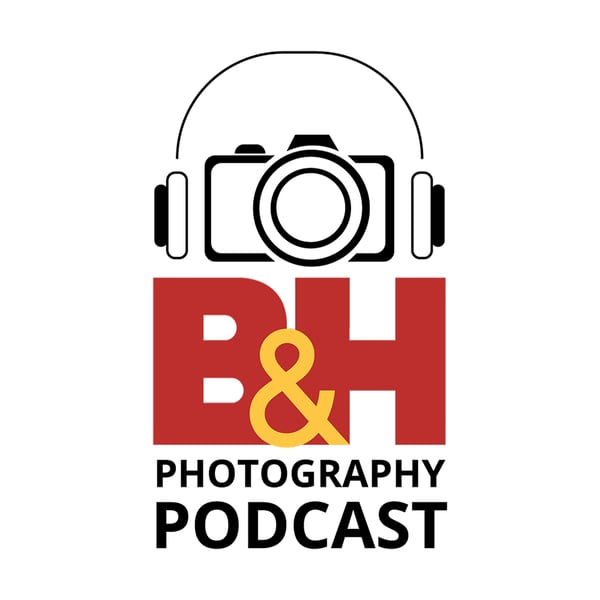Earth Day Encore Episode: The Ethics of Landscape Photography
B&H Photography Podcast
Jill Waterman
4.6 • 2K Ratings
🗓️ 21 April 2022
⏱️ 77 minutes
🧾️ Download transcript
Summary
(This episode of the B&H Photography Podcast was originally published on January 20, 2017.)
We are living in a Golden Age of landscape photography. Digital cameras and improved software enable the kind of imaging that until recently was only possible via the budgets of large publications and the talents and ambitions of a few select photographers. Ambition and talent remain, and with enhanced dynamic range and color algorithms, higher sensitivity settings, simplified stitching and compositing software, and a network of websites to display work, impressive landscape photography is abundant; however, there are new masters and the skill set of current practitioners includes not only those of the photographer, but also of the savvy digital graphic artist.
With the ability to pull details from shadows, augment colors, and combine distinct files into a single image now easier than ever, we must ask—is it acceptable to represent nature without natural characteristics, to merge photos from different focal lengths into one image, or add a blazing sunset to a foreground taken hours or days apart? Can images composed in such a way even be defined as photography and does an ethos, akin to that in photojournalism, apply to nature photography?
These are some of the questions we pose to two incredible landscape photographers, Adam Burton and Ryan Dyar. We spoke with them separately, but prepared a similar set of questions, and asked them to walk us through their in-camera workflow and post-process techniques. We spoke about their approach to a scene, their use of “grad-filters” and plug-ins, acceptable degrees of enhancement, and strove to understand if there is indeed an ethics to landscape photography.
Guests: Ryan Dyar and Adam Burton
Photograph © Ryan Dyar
For more information on the photographers and the gear discussed in this episode, please see the B&H Photography Podcast home page.
Transcript
Click on a timestamp to play from that location
| 0:00.0 | You're listening to the B&H Photography Podcast. |
| 0:04.0 | For over 40 years, B&H has been the professional source for photography, video, audio, and |
| 0:08.8 | more. |
| 0:09.8 | For your favorite gear, news, and reviews, visit us at bnh.com or download the B&H app to |
| 0:15.4 | your iPhone or Android device. |
| 0:17.6 | Now here's your host, Alan White's. |
| 0:20.4 | Welcome to the B&H Photography Podcast. |
| 0:23.0 | Today's episode takes on the subject of post-processing in landscape photography and asks the question, |
| 0:28.8 | is there an ethics to landscape photography? |
| 0:31.5 | We're very fortunate to be joined by two incredibly talented artists, Ryan Dyer and Ann Emperton, |
| 0:37.2 | and we'll be discussing the pleasures and challenges of their craft. |
| 0:40.0 | We'll talk a bit about gear and their use of filters, but want to concentrate on the workflow |
| 0:44.7 | and specifically on their post-processed philosophies. |
| 0:48.2 | The idea of this episode is to try to establish the line when post-processing turns photography |
| 0:52.9 | into something else. |
| 0:54.7 | Is it acceptable to represent nature without natural characteristics and can you go too |
| 0:59.3 | far? |
| 1:00.3 | Finally, does an ethics similar to that in photojournalism apply to nature photography? |
| 1:06.4 | Before we start, a request from all of us to all of you. |
| 1:09.6 | If you enjoy listening to our show, take a moment to leave us a review on iTunes, and if |
| 1:14.5 | you're not already a subscriber, subscribe. |
| 1:17.7 | It's free. |
... |
Please login to see the full transcript.
Disclaimer: The podcast and artwork embedded on this page are from Jill Waterman, and are the property of its owner and not affiliated with or endorsed by Tapesearch.
Generated transcripts are the property of Jill Waterman and are distributed freely under the Fair Use doctrine. Transcripts generated by Tapesearch are not guaranteed to be accurate.
Copyright © Tapesearch 2025.

